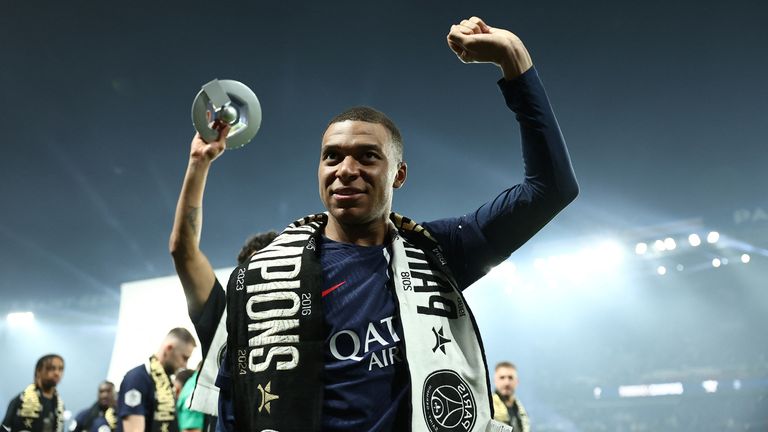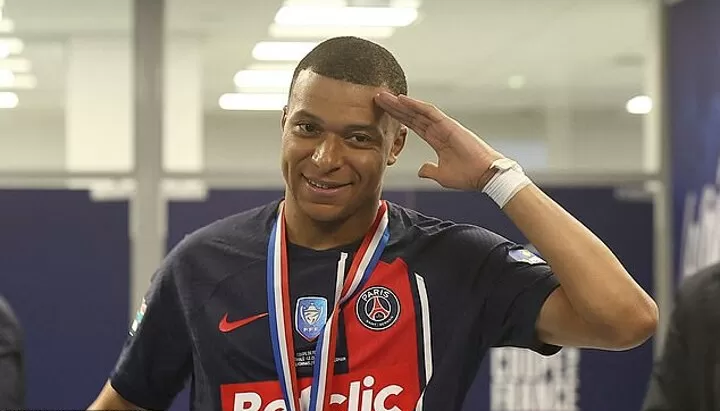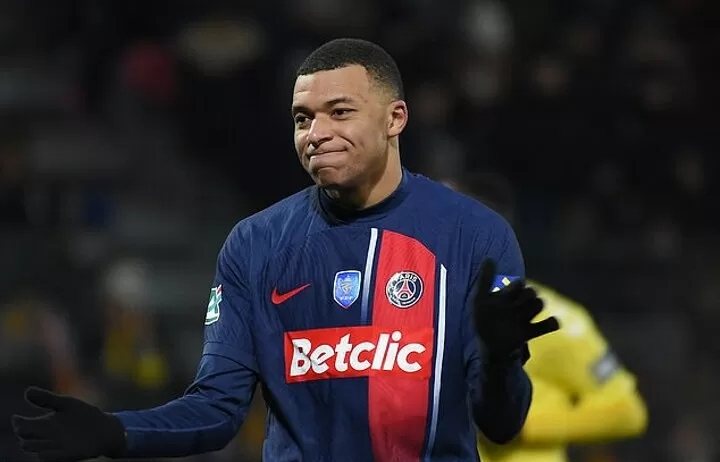Kylian Mbappé’s move to Real Madrid has taken the world of football by storm, marking one of the most high-profile transfer deals in recent history. The electrifying French attacker, recognized internationally for his unerring ability to find the back of the net, is set to join the ranks of the Spanish giants, a move that has been in the works for several years.
A number of factors were instrumental in the successful completion of this deal, including Mbappé’s desire to play for a club of Real Madrid’s stature, the strategic moves by the management, and the financial aspects of the deal. This major shift promises to bring about significant changes in the dynamics of both Paris Saint-Germain, his former club, and Real Madrid.
The transfer has caused a significant stir among the football community, with supporters and critics alike voicing their opinions. Many believe that this move will provide a substantial boost to Real Madrid’s offensive capabilities, especially considering Mbappé’s proven track record. His speed, agility, and goal-scoring prowess, matched with his exceptional ability to create opportunities for his teammates, could prove invaluable to Real Madrid. The club, which has a history of acquiring high-caliber players, views this as an opportunity to further cement its dominance in European football.
On the other hand, Paris Saint-Germain is faced with the task of filling the void left by Mbappé. Despite the departure of such a key figure, the club has a roster of world-class players at its disposal, and it is anticipated that they will be able to adapt to this change. This transfer, while a loss for Paris Saint-Germain, also provides an opportunity for other players to step up and shine.
The financial implications of this deal are immense. With the transfer fee and Mbappé’s wages, the total value of the deal is staggering. This clearly reflects the high stakes involved in modern football, where clubs are willing to invest substantial amounts to secure the services of top players. The deal is also indicative of Real Madrid’s financial power, demonstrating their ability to spend big in order to maintain their competitive edge.
This high-profile transfer of Kylian Mbappé to Real Madrid also has potential implications on the broader football landscape. It could shift the balance of power in European football, as the addition of such a talented player to Real Madrid’s ranks could significantly enhance their chances in various competitions. Furthermore, it may influence future transfer activities, setting a precedent for other big-name players considering a change of clubs.
In conclusion, Kylian Mbappé’s transfer to Real Madrid is a significant event in the world of football. It is a move that could potentially redefine the player’s career and the future of both clubs. As football fans around the globe eagerly anticipate seeing Mbappé in a Real Madrid jersey, it is safe to say that his performance after the move will be under intense scrutiny. Regardless of the outcome, this high-profile transfer deal is certain to be a pivotal moment in football history.

A Game-Changing Move
In the dynamic sphere of business, every so often, a company makes a revolutionary decision, a game-changing move that alters the landscape of an industry. This groundbreaking shift often results in a ripple effect that has profound implications for competitors, consumers, and the market at large. One such notable instance was when Netflix, originally a DVD rental service, decided to pivot towards streaming media.
This strategic move transformed the entertainment industry, subsequently shifting the viewing habits of millions worldwide. Netflix’s innovative approach turned it into a dominant force in the entertainment industry, setting the bar high for its competitors. This strategic decision paved the way for an era of ‘binge-watching’ and ‘cord-cutting’, where consumers started to prefer streaming services over traditional cable TV. It not only established a new business model but also changed the way content was produced, distributed, and consumed.
This move led to a paradigm shift in the entertainment industry, sparking a wave of innovation and competition. In the wake of Netflix’s success, numerous other companies, including Amazon and Disney, have launched their own streaming platforms, thereby further transforming the entertainment landscape. This game-changing move by Netflix demonstrates how strategic decisions can alter an entire industry’s trajectory, reshaping the norms and revolutionizing the way business is conducted.
It underscores the importance of innovation, adaptability, and strategic foresight in today’s ever-evolving business landscape. Moreover, it serves as a reminder that companies must be willing to take calculated risks and challenge the status quo to stay relevant and competitive in the fast-paced world of business.

Terms of the Deal
Terms of the deal refer to the agreed-upon conditions between two or more parties involved in a transaction or agreement. These terms outline the obligations and responsibilities of all parties involved, the duration of the agreement, the costs associated, and other details pertinent to the transaction. Essentially, they serve as a blueprint for the transaction, stipulating the requirements for completion and the repercussions for any potential breaches.
Understanding the terms of the deal is crucial for all parties involved as it shapes the nature of their interaction, and the outcomes they can expect. These terms might encompass payment schedules, delivery dates, quality standards, or other specific details depending on the nature of the transaction. They are usually discussed and agreed upon before the finalization of the deal to ensure a smooth process.
For example, in a real estate purchase, the terms of the deal might include the purchase price, the closing date, contingencies such as home inspections or financing, and who is responsible for paying certain costs like closing costs or property taxes.
In a business partnership, the terms might outline the equity split, the roles and responsibilities of each partner, how profits and losses will be divided, and procedures for resolving disputes or dissolving the partnership.
It’s important to note that while these terms are meant to prevent misunderstandings and ensure fair dealings, they are not infallible. Disagreements can arise even with the most well-crafted terms. Therefore, it is vital for the parties to communicate clearly and honestly during the negotiations, and for each party to fully understand and agree to the terms before proceeding.
In conclusion, the terms of the deal act as a roadmap, guiding the involved parties through their transaction or agreement. They provide a clear understanding of what is expected from each party, how the process will unfold, and what the consequences might be if the terms are not met. It is essential for the parties to understand and agree to these terms to ensure a successful and fair transaction.
Mbappé’s Career Path
Kylian Mbappé’s career path has been nothing short of exceptional. Born in Bondy, France, the prodigy started playing football at a very young age, joining AS Bondy, a local club coached by his father. His remarkable talent was evident from the beginning, leading to a swift transition to the renowned Clairefontaine Academy. By the age of 16, he had already signed his first professional contract with AS Monaco, where he played a crucial role in their victorious 2016-2017 Ligue 1 campaign.
In 2017, Paris Saint-Germain (PSG), one of the wealthiest clubs in the world, identified his potential and signed him on loan, before making the move permanent for a staggering reported fee of €180 million, making him the most expensive teenager and the second most expensive player in football history. Mbappé has been instrumental in PSG’s dominance in French football, helping them clinch multiple Ligue 1 titles. His speed, agility, and clinical finishing have earned him comparisons with greats like Thierry Henry and Pelé.
Internationally, Mbappé made his senior debut for France in 2017. A year later, he played a pivotal role in the French team’s triumph at the 2018 FIFA World Cup, scoring four goals and becoming the second teenager, after Pelé, to score in a World Cup Final. He received the Best Young Player Award for his outstanding performances.
Despite his early success, Mbappé remains ambitious and focused on his career. He has expressed interest in playing in other top European leagues, sparking rumors of potential moves to clubs like Real Madrid or Liverpool. Regardless of where he ends up, there is no doubt that Mbappé’s extraordinary talent and relentless drive will continue to see him scale new heights in the world of football. At only 23 years old, the world is very much at his feet and many eagerly anticipate the next chapters in his already illustrious career.

Fan and Club Expectations
Fan and Club Expectations refer to the anticipations and standards that both fans and sports clubs hold for each other in relation to performance, behavior, and communication. Fans hold high expectations for their favored clubs, hoping for consistent victories, exceptional performances, and exemplary sportsmanship. They expect the club to respect their loyalty and support, and to continually strive for success to uphold the club’s reputation. They also anticipate regular and transparent communication from the club about team news, fixtures, and player updates.
On the flip side, clubs have their own set of expectations from fans. The clubs expect unwavering support from their fans, regardless of the highs and lows they may experience. They anticipate fans to respect the team’s decisions, to act decently during matches, and to represent the team positively, both in person and on social media platforms. Clubs also expect fans to contribute to a positive match-day atmosphere, to buy merchandise or tickets, and to engage with club initiatives and events.
The relationship between fans and clubs is a symbiotic one, with both parties playing a vital role in the success and functioning of the team. However, even in this close-knit relationship, it is crucial to maintain a certain degree of respect and understanding for each other’s roles and responsibilities.
When these expectations are met, it fosters a harmonious relationship between the two, leading to a thriving and successful sports club with a strong, supportive fanbase. But when these expectations are not met, it can lead to dissatisfaction, conflict, and a potential breakdown in the relationship. Therefore, managing and meeting these fan and club expectations is a crucial aspect of sports management.
